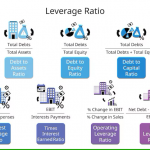In the dynamic world of mergers and acquisitions (M&As), a powerful force often lurks behind the scenes – activist investors. These influential players have the ability to significantly impact the outcome of big deals, shaping the future of the companies involved. Activist investors are typically institutional or individual shareholders who take an active stance in a company, advocating for strategic changes to maximize shareholder value or drive broader corporate governance reforms.
At the core of their approach, activist investors leverage their significant stakes in a company to exert influence over the decision-making process. They may push for changes in management, the board of directors, or the overall business strategy. In the context of M&As, these investors can play a crucial role in determining the success or failure of a deal, often using their voting power and public pressure to sway the outcome in their favor.
The motivations of activist investors can vary widely, from seeking immediate financial gains to advocating for long-term sustainable growth and social responsibility. Some may focus solely on maximizing shareholder returns, while others may have a broader agenda that includes environmental, social, and governance (ESG) considerations. Regardless of their specific goals, these investors possess the ability to disrupt the status quo and challenge the traditional power dynamics within a company, particularly during transformative events like mergers and acquisitions.
The impact of Activist Investors on M&A deals
The influence of activist investors on M&A deals can be profound, as they possess the means to shape the trajectory of these transactions. Their involvement can range from proposing alternative merger partners or acquisition targets to advocating for changes in the terms and conditions of a deal.
One of the primary ways activist investors impact M&As is through their ability to mobilize shareholder support. By leveraging their voting power and public platforms, they can rally other shareholders to their cause, effectively putting pressure on the company’s management and board of directors. This can lead to the renegotiation of deal terms, the rejection of a proposed transaction, or the exploration of alternative strategic options.
Moreover, activist investors often possess deep industry knowledge and expertise, which they utilize to scrutinize the merits of a proposed M&A deal. They may challenge the strategic rationale, question the valuation, or raise concerns about potential synergies and integration risks. This level of scrutiny can force companies to reevaluate their plans and potentially make concessions to appease the activist investor’s demands.
Case studies of successful M&A deals influenced by Activist Investors
The influence of activist investors on M&A deals is not merely theoretical; it has played out in numerous real-world scenarios, with significant implications for the companies involved. One notable example is the case of Xerox and Fujifilm, where activist investor Carl Icahn and his allies successfully derailed a proposed $6.1 billion merger between the two companies.
Icahn, who held a significant stake in Xerox, argued that the terms of the deal were unfavorable to Xerox shareholders and that the company should instead explore alternative options, including a potential sale to a third party. Through a proxy fight and public pressure, Icahn and his allies were able to force the resignation of Xerox’s CEO and chairman, ultimately leading to the termination of the Fujifilm merger agreement.

Another case study is the acquisition of Allergan by AbbVie, where activist investor Bill Ackman played a pivotal role. Ackman’s Pershing Square Capital Management had acquired a stake in Allergan and pushed for the company to explore strategic alternatives, including a potential sale. This pressure, combined with Ackman’s advocacy for a higher acquisition price, ultimately led to AbbVie’s $63 billion offer for Allergan, which was accepted by the target company’s shareholders.
These examples illustrate the significant impact that activist investors can have on the outcome of M&A deals, underscoring their ability to shape the future of these transformative transactions.
Strategies employed by Activist Investors in M&As
Activist investors employ a range of strategies to influence the outcome of M&A deals, leveraging their financial resources, industry expertise, and public platforms to achieve their desired outcomes.
One common tactic is the accumulation of a significant stake in the target company, which gives the activist investor voting power and a stronger voice in the decision-making process. By acquiring a substantial ownership position, the activist can then push for changes to the proposed deal terms, the composition of the board of directors, or the overall strategic direction of the company.
Another strategy employed by activist investors is the use of public campaigns and media engagement. These investors often take their case to the public, utilizing various communication channels to voice their concerns, rally other shareholders, and put pressure on the company’s management and board. This public scrutiny can force companies to reconsider their M&A plans or make concessions to appease the activist investor’s demands.
Activist investors may also engage in legal and regulatory actions to influence the outcome of M&A deals. This can include filing lawsuits, challenging the legality of certain transaction terms, or advocating for regulatory intervention to block or modify a proposed deal. By leveraging the legal and regulatory framework, these investors can create obstacles and delays that can significantly impact the timeline and ultimately the success of an M&A transaction.
The legal and regulatory implications of Activist Investors in M&As
The involvement of activist investors in M&A deals has significant legal and regulatory implications, as their actions can intersect with various laws and regulations governing corporate governance, securities, and antitrust considerations.
From a corporate governance perspective, activist investors’ efforts to influence the composition of a company’s board of directors or the decision-making process can raise questions about fiduciary duties and the balance of power between shareholders and management. Companies must navigate these complex legal and ethical considerations to ensure they are acting in the best interests of all stakeholders.
In the realm of securities regulation, activist investors’ public campaigns and disclosure requirements can come under scrutiny. Regulations such as the Securities Exchange Act of 1934 in the United States and similar laws in other jurisdictions require investors to comply with reporting and disclosure obligations, particularly when their ownership stake in a company exceeds certain thresholds. Failure to meet these regulatory requirements can result in legal consequences for the activist investor.
Furthermore, the antitrust implications of M&A deals influenced by activist investors cannot be overlooked. Regulatory bodies, such as the Federal Trade Commission (FTC) and the Department of Justice (DOJ) in the United States, closely monitor mergers and acquisitions to ensure they do not create undue market concentration or harm competition. Activist investors’ advocacy for or against certain deal structures can trigger additional scrutiny and potentially lead to regulatory intervention or the imposition of conditions on the transaction.
Challenges faced by Activist Investors in shaping M&A deals
While activist investors possess significant influence in the realm of M&As, they also face their own set of challenges in shaping the outcome of these transformative transactions.
One of the primary challenges is the need to build and maintain a coalition of supportive shareholders. Activist investors must effectively communicate their vision and persuade other shareholders to join their cause, which can be a complex and time-consuming process. Failure to secure sufficient shareholder support can undermine the activist’s ability to influence the decision-making process.
Additionally, activist investors must contend with the entrenched power and resources of the target company’s management and board of directors. These established leaders often have deep industry knowledge, legal expertise, and access to financial resources that can be leveraged to defend against the activist’s demands. Overcoming this resistance can require a sustained and multifaceted approach from the activist investor.
Another challenge faced by activist investors is the evolving legal and regulatory landscape. As governments and regulatory bodies seek to address the potential risks and abuses associated with activist interventions, the rules governing these activities may become more stringent. Navigating the legal and compliance requirements can add complexity and constraints to the activist investor’s ability to influence M&A deals.
The future of Activist Investors in M&As
As the role of activist investors in M&A deals continues to evolve, it is clear that their influence will remain a significant factor in shaping the future of these transformative transactions.
One emerging trend is the increasing focus on environmental, social, and governance (ESG) considerations by activist investors. As stakeholders, including consumers, employees, and investors, become more attuned to the social and environmental impact of corporate decisions, activist investors are likely to leverage their influence to push for greater alignment between M&A deals and ESG principles.
Additionally, the growing prevalence of passive investment strategies, such as index funds, may present both opportunities and challenges for activist investors. While these passive investors may be less inclined to actively engage in corporate governance matters, their collective voting power can still be a significant factor in determining the outcome of M&A deals. Activist investors may need to adapt their strategies to effectively engage with and influence these passive investors.
Furthermore, the regulatory landscape surrounding activist interventions is likely to continue evolving, as policymakers and regulatory bodies seek to strike a balance between protecting shareholder rights and mitigating potential abuses. Activist investors will need to navigate these changing regulations, ensuring their actions remain compliant and aligned with the broader legal and governance frameworks.
The role of corporate governance in M&A deals influenced by Activist Investors
The influence of activist investors in M&A deals underscores the critical importance of robust corporate governance practices. As these influential players seek to shape the future of big deals, companies must ensure that their decision-making processes are transparent, accountable, and aligned with the interests of all stakeholders.
A strong corporate governance framework can help companies navigate the challenges posed by activist investors during M&A transactions. This includes having an independent and diverse board of directors, clear policies and procedures for evaluating and approving M&A deals, and effective communication channels with shareholders and other stakeholders.
Furthermore, companies should strive to maintain a culture of integrity, ethical decision-making, and long-term value creation. By demonstrating a commitment to responsible corporate governance, companies can build trust and credibility with both their shareholders and the broader investment community, potentially reducing the impact of activist interventions during M&A deals.
Ultimately, the interplay between activist investors and corporate governance in the context of M&As highlights the need for a balanced and collaborative approach. Companies must be willing to engage with activist investors, listen to their concerns, and find mutually beneficial solutions that create value for all stakeholders. By embracing this dynamic, companies can navigate the complexities of M&A deals more effectively and shape the future of their organizations with greater confidence and success.
Conclusion and key takeaways
In the high-stakes world of mergers and acquisitions, the hidden power plays of activist investors can have a profound impact on the future of big deals. These influential players leverage their financial resources, industry expertise, and public platforms to shape the decision-making process, often challenging the traditional power dynamics within a company.
Through a range of strategies, from accumulating significant ownership stakes to engaging in public campaigns and legal actions, activist investors can force companies to reconsider their M&A plans, renegotiate deal terms, or explore alternative strategic options. The legal and regulatory implications of these interventions add an additional layer of complexity, as companies must navigate the evolving landscape of corporate governance, securities regulations, and antitrust considerations.
As the role of activist investors in M&A deals continues to evolve, companies must adapt their approach to corporate governance, fostering a culture of transparency, accountability, and long-term value creation. By embracing this dynamic and finding a balanced, collaborative approach, companies can navigate the complexities of M&A deals more effectively and shape the future of their organizations with greater confidence and success.






